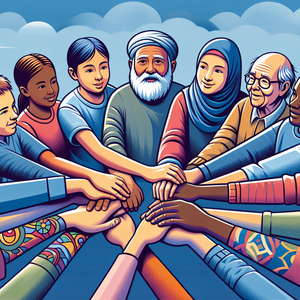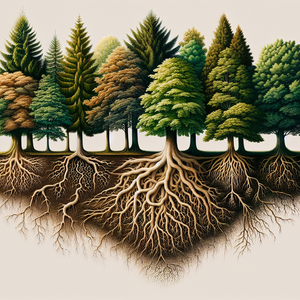The Philosophy of the Untasted Scoop

Our culture is steeped in indulgence. From advertisements to cultural rituals, we are bombarded with the message that happiness can be bought, consumed, or tasted. Ice cream, in particular, has long been a symbol of collective joy—a staple of childhood summers, celebrations, and simple pleasures. To refuse a scoop, then, is not just a dietary choice; it is a quiet rebellion against this narrative. To reject ice cream is to reject the idea that pleasure must always stem from external sources. The untasted scoop sends a bold message: “I do not need this to find contentment.” This act of defiance against societal expectations is not about deprivation or asceticism but about reclaiming agency. In a world where indulgence is often marketed as self-care, choosing not to indulge becomes a radical statement of self-mastery. Consider the individual who refuses the scoop. Their choice may perplex others, even provoke discomfort, as it challenges the implicit agreement that indulgence equates to happiness. Yet, this simple refusal underscores a profound truth: happiness is not a product of what we consume but of how we live with intention.
The Discipline of Self-Restraint
At its core, the untasted scoop is a testament to the power of self-discipline. In a society wired for instant gratification, where desires can be satisfied with a swipe or a click, the ability to resist temptation is increasingly rare. The refusal of a scoop of ice cream, while seemingly trivial, becomes a symbolic act of self-control—a small but meaningful exercise in restraining impulses. Psychologists often liken self-discipline to a muscle that becomes stronger with practice. By consciously denying oneself a fleeting indulgence, a person reinforces their ability to make deliberate and thoughtful choices in other areas of life. This principle is echoed in numerous philosophical and spiritual traditions. Ancient Stoicism, for instance, teaches that true freedom comes from mastering one’s desires rather than being enslaved by them. Similarly, Buddhist teachings emphasize mindfulness and the importance of intentional living. The untasted scoop, then, is not about deprivation but about cultivating a deeper sense of purpose. It is a microcosm of a larger philosophy that values intentionality over impulsivity and long-term fulfillment over short-term gratification.
The Untasted Scoop as a Mirror
Interestingly, the refusal of something as innocuous as ice cream often elicits strong reactions from onlookers. “Why wouldn’t you just have a little?” “Are you trying to prove a point?” Such questions reveal much about societal norms and the way individual choices can challenge collective assumptions. The untasted scoop acts as a mirror, reflecting not only the chooser’s values but also the cultural scripts that govern our behavior. Why do we feel compelled to indulge simply because something is offered? How often do we make choices out of habit, convenience, or social expectation rather than genuine desire? For the person who refuses the scoop, their decision may prompt others to reflect on their own automatic behaviors. It forces a pause, an uncomfortable moment of introspection. The untasted scoop becomes a catalyst for questioning not just what we consume, but why we consume it. It reminds us that even our smallest choices ripple outward, influencing how we and others approach the world.
Finding Freedom in Peculiar Choices
At its heart, the philosophy of the untasted scoop is about freedom—the freedom to live authentically, to choose mindfully, and to resist the pull of societal expectations. In this sense, the untasted scoop is not just about saying “no” to ice cream; it’s about saying “yes” to individuality and intentionality. For one person, freedom might mean savoring a double scoop of their favorite gelato. For another, it might mean walking past the ice cream shop without a second glance. Both choices are valid as long as they are made with intention and alignment to one’s values. The untasted scoop is not about moral superiority or judgment; it is about mindfulness. It invites us to ask, “What do I truly want? What aligns with my goals, my principles, and my sense of self?” In this way, the untasted scoop serves as a reminder that peculiar choices—however small—can be acts of profound self-expression. Whether it’s skipping a trendy dessert, opting out of a popular social activity, or charting an unconventional life path, these decisions reflect our autonomy and our willingness to live by our own standards.
The philosophy of the untasted scoop may seem whimsical, but it carries a depth of meaning that extends far beyond ice cream. It represents rebellion against cultural norms, the cultivation of self-discipline, and the ripple effects of intentional choices. It invites us to pause, reflect, and live with greater awareness of the values that guide our actions. Ultimately, the untasted scoop is not about the ice cream—or any other specific indulgence. It is about what that choice represents. It reminds us that life is made up of countless small decisions, each with the potential to shape who we are and how we live. Whether we choose to indulge or to walk away, what matters most is that we do so with purpose.
Behavioral Economist
Behavioral research organizations (e.g., ideas42), finance firms, public policy think tanks
Role Description
Analyze human behavior and decision-making, particularly in areas of self-control, choices, and delayed gratification.
Design and test experiments to understand how individuals respond to incentives and societal norms.
Work with governments, NGOs, or private companies to develop policies or products that promote intentional and sustainable behaviors.
Unique Skills
Strong background in psychology, economics, and statistical modeling.
Expertise in designing behavioral interventions.
Mindfulness Coach or Facilitator
Wellness companies, corporate training firms, or private practice
Role Description
Develop and lead programs that teach mindfulness, meditation, and self-discipline techniques to individuals or teams.
Customize workshops to help clients manage stress, improve focus, and align their actions with personal values.
Work with corporate clients, wellness centers, or as an independent consultant to promote intentional living.
Unique Skills
Deep understanding of mindfulness practices.
Certifications in meditation or yoga.
Excellent communication and empathy.
Ethical Product Designer
Tech companies (e.g., Apple, IDEO), sustainability-focused startups, or social enterprises
Role Description
Create products with a focus on promoting intentional consumption and sustainable choices.
Collaborate with cross-functional teams to ensure products align with values of mindfulness and self-restraint.
Address ethical concerns in user experience design, such as minimizing addictive behaviors or overconsumption.
Unique Skills
Expertise in user-centered design.
Sustainability principles.
Ethical frameworks in technology.
Philosophy Educator or Consultant
Universities, corporate leadership programs, or freelance projects
Role Description
Teach or write about philosophical principles, such as Stoicism, mindfulness, and ethical decision-making.
Develop content or workshops for educational institutions, businesses, or individuals seeking guidance on intentional living.
Offer corporate consulting on embedding philosophical values into organizational culture or leadership practices.
Unique Skills
Advanced degree in philosophy or related fields.
Ability to translate abstract concepts into practical applications.
Sustainability Strategist
Environmental nonprofits, global corporations, or government agencies
Role Description
Help organizations develop and implement strategies for reducing environmental impact and promoting mindful resource use.
Advise on sustainable practices, emphasizing the importance of restraint and intentionality in business operations.
Collaborate with stakeholders to align sustainability goals with long-term business objectives.
Unique Skills
Expertise in environmental science.
Corporate social responsibility (CSR).
Change management.


